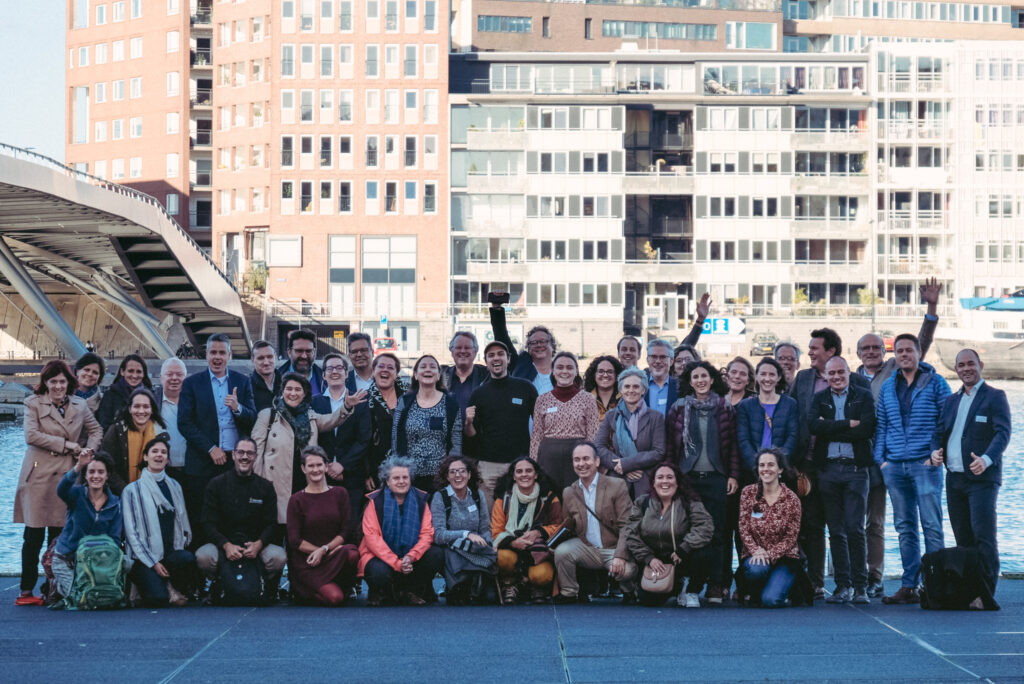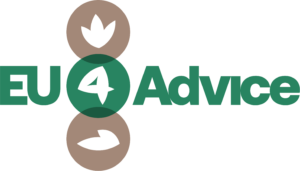Amped leads EU4Advice governance with GAIN
The Horizon Europe project EU4Advice was officially kicked off on October 6-7 2022, hosted at Pakhuis de Zwijger in Amsterdam and The Natural Pavilion at Floriade Expo 2022 in Almere. EU4Advice is a combination of the top Horizon Europe-projects, aligned into a thematic network approach, and integrating the GAIN Transition model as a strategy framework.
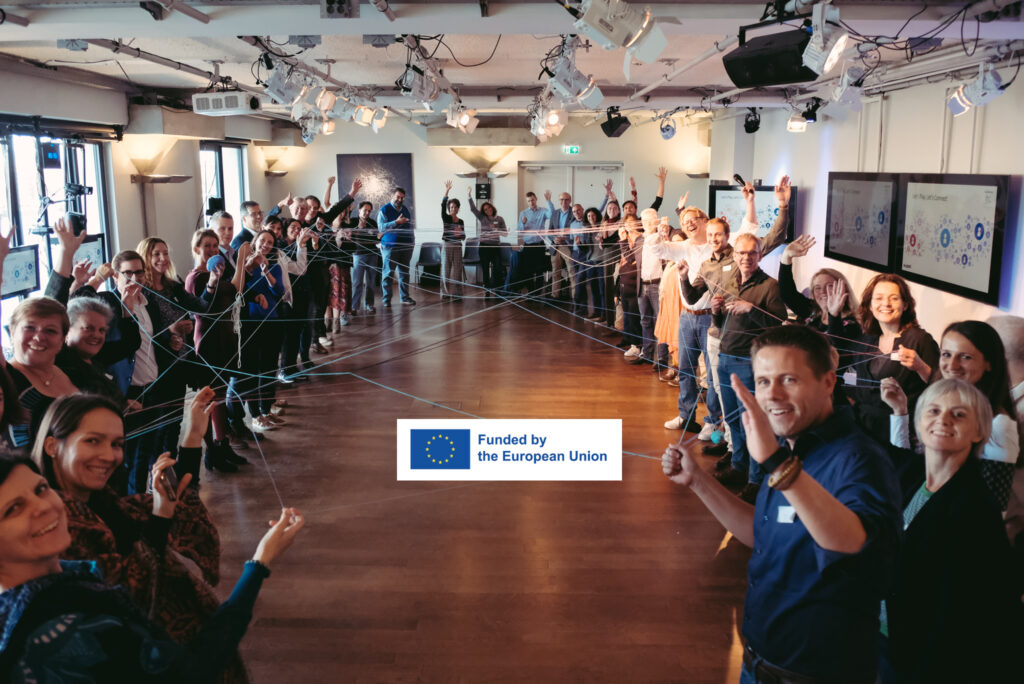
Amped is responsible for building a learning ecosystem of Short Food Supply Chain (SFSC) advisory and expert networks through GAIN.
EU4Advice objective
The main objective of the EU4Advice-project is to settle the foundations and structures required to ensure effective capacity building of SFSC actors through fluent knowledge transfer. Applying the principles of the interactive innovation model (GAIN), the EU4Advice-project aims to boost the role of advisors as catalysers of the knowledge flow from research to practice, through the creation of an EU-network of advisors with knowledge and expertise on SFSC issues, and the implementation of measures towards the effective integration of SFSC advisors into national Agricultural Knowledge and Innovation Systems (AKIS).
EU4Advice clearly deals with these important goals from the Farm2Fork Strategy, as it is intended to promote the most sustainable and empowering SFSC models, which constitute a promising and emerging sustainable alternative to globalized food systems, with strong potential to empower both producers and consumers, and at the same time reduce the environmental footprint and enhance the competitiveness of the agri-food system. This ambitious project is led by Innogestiona in Badajoz, Spain and is aligned with various EU-projects: COREnet (SKIN), COFRESH, FAIRCHAIN, Strength2Food, EUREKA /
EURAKNOS (EU FarmBook) and SMARTCHAIN.
EU4Advice’s consortium builds upon the important findings and recommendations of the research project SMARTCHAIN H2020 (2019-2021) which supported collaborative short food supply chains (SFSC) in Europe. The project brought together a wide range of policymakers, practitioners and researchers interested in learning more about collaborative SFSC and how to support their growth.
SMARTCHAIN H2020 maintains the definition of SFSC as formulated within SMARTCHAIN: “SFSCs are co-operative systems that include very few intermediaries, increasing sustainability, transparency, social relations and fairer prices for farmers and consumers. Such supply chains usually involve local producers working together to promote local food which, in many cases, only travels a short distance, so farmers and consumers can communicate with each other.”
Published paper on GAIN
Amped, in collaboration with Utrecht University and its Copernicus Institute of Sustainable Development, wrote the scientific paper on GAIN: ‘Gamification for sustainable food transitions: supporting multi-level cooperation in short food supply chains through GAIN‘, published by the ISEKI-FOOD Association. The paper on GAIN was authored by Mark Frederiks, Danika Moore, Bob Massar, Prof. dr. Remco Veltkamp and Prof. dr. Hens Runhaar.
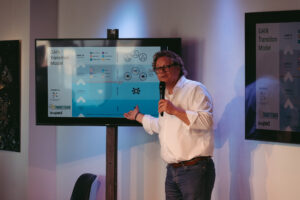
The paper introduces the GAIN Transition Model, a novel framework based on gamification, which provides a holistic and actionable framework for SFSC actors to coalesce and strategise around a common vision. The paper illustrates the underlying principles of GAIN and its potential for institutionalising SFSC. The finding thus far is that GAIN has helped to catalyse action and has proven a useful tool which provides a common language for actors to navigate this complex space. The EU4Advice project driven by a strong consortium offers the opportunity to further research and disseminate the GAIN transition model to conclude with more certainty on the quantitative impact of GAIN in terms of enabling and strengthening short food supply chains.
Amped’s Work Packages
Within this project Amped will be leading various tasks to accomplish the objectives of EU4Advice:
- Establishing the Living Lab of Central Europe in Amsterdam, connected with 3 other Living Labs (Nordics, Southern and Western Europe);
- Orchestrating knowledge exchange between the 4 Living Labs through transformational governance models;
- Activation and dynamization of EU networks of SFSC advisors through GAIN;
- Digitalisation and consolidation of the advisory and expert networks within several virtual spaces, and defining pathways for continuation of this learning ecosystem upon the conclusion of the project.
The Living Lab of Central Europe will be managed in the Amsterdam Metropolitan Area in collaboration with AMS Institute, Province of Flevoland and Wageningen University.
With this project we can also facilitate collaboration between running projects and networks in the metropolitan region of Amsterdam and Utrecht, building a learning ecosystem realizing a just transition towards a regional, regenerative food system. Simultaneously bringing our ambition, recently presented in Dubai, of building a learning ecosystem of regional food systems a big step closer. This also aligns with other collaborations of Amped:
- FoodCLIC project;
- Connecting ecosystems around regional food policy of Copenhagen, Paris, Brussels;
- Ecosystem of Horticulture Network NL;
- Ecosystem of Pakhuis de Zwijger;
- Collaboration with Utrecht University’s Future Food-hub, Local2Local en Grounded.
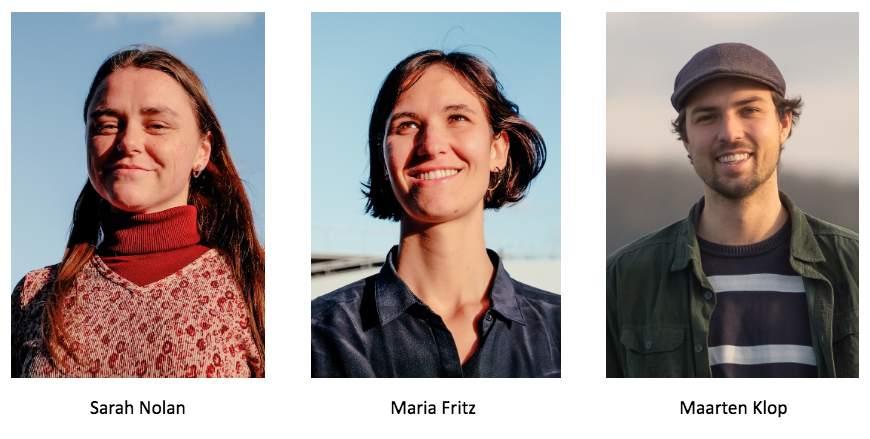
Lasty, this project brings the opportunity to realize one of our key ambitions: connecting our network of young talented people and making a great leap towards empowering a new generation. Sarah Nolan is research assistant of University College Dublin and responsible for the Nordic Living Lab Hub within EU4Advice. Maarten Klop presented his Grounded community and the Local2Local Talents concept to build an ecosystem of young talents as a unique opportunity for the project. And Maria Fritz was present at the kick-off to connect the Impact Hub organization to the partner network.
